Read all about the history of your Irish surname or your family name's meanings in our list of most common Irish last names.
Ever wondered about the history behind your Irish name? Where did your earliest ancestors come from? What was their profession? How did their name change over the centuries?
The following is Part II (letters H - M) of our comprehensive list of the 300 most common Irish surnames and their meanings. If your Irish last name doesn't appear on this list, you may find it in the other two parts:
The meaning behind your Irish name, Part II: Letters H - M
Hackett
The surname Hackett is of Norman origin, Haket being a common Norman personal name. The Hacketts came to Ireland at the time of the Anglo-Norman invasion at the end of the twelfth century, and people of that name were soon thereafter settled in several places in the area covered by the modern counties of Kilkenny, Carlow and Kildare.
O'Hagan, Aiken
This is one of the Gaelic names, which was less affected than most by the widespread dropping of the prefix 'O' during the centuries of Gaelic depression and submergence, for the form O'Hagan is much more common than Hagan. In Irish it is Ó hAodhagán (diminutive of Aodh or Hugh). There are many variants of the name in English such as Hegan, Aiken, and others.
MacHale
Few names are more exclusively associated with one Irish county than MacHale of Mayo. Those of the Gaelic sept Mac Céile were erenaghs (lay parish administrators) of Killala. The surname MacHale was also adopted by a Welsh family who settled in the barony of Tirawley, Co. Mayo, in the thirteenth century: it derives from the forename Howell. Being located in the same county the descendants of these cannot now be distinguished from their namesakes of Gaelic origin: in any case, centuries of Connacht inter-marriages have made the one just as Irish in blood as the other.
O'Halloran
O'Halloran, in Irish Ó hAllmhurain, is the name of two distinct septs. These were located in adjoining counties, Clare and Galway, where their present day descendants are common, though seldom found in Leinster or Ulster. The propinquity of these two counties makes it a matter of doubt as to which sept dwellers on their border belong, except in cases where a pedigree or family tradition exists.
O'Hanlon
O'Hanlon is a name which is always associated with Co. Armagh. The sept was located in the baronies of Oneilland and Orior. For centuries their chiefs were known as lords of Orior.
O'Hanly, Henly
The surname Hanley or Hanly is the anglicized form of the Irish Ó hAinle, which is possibly derived from the Gaelic word "áluinn", meaning "beautiful" (we may also note that in modern Irish, "ainle" means "a swallow"). It is found today principally in (and is almost confined to) two areas – Counties Roscommon and Galway, where it is usually spelled Hanly. In Co. Cork and adjacent districts the spelling is usually Hanley.
O'Hannon, Hanneen
Although there are many substantial families of Hannon in Munster and Connacht, the Annals and other sources of information regarding the septs of medieval Ireland seldom mention the name O'Hannon. The death of Maelisa O'Hannen, prior of Roscommon, in 1266 is one of the few.
O'Hanrahan, Hourihane
The O'Hanrahans are a Dalcassian sept: for the most part they are still found in their original location – Counties Clare and Limerick. Their name in Irish is Ó hAnracháin. This is stated to be a variant of Ó hAnradháain which has been anglicized O’Hourihane in Co. Cork, where a sept of the name were erenaghs of Ross (Irish: airchinnech; responsible for receiving parish revenue from tithes and rents, building and maintaining church property and overseeing the termonn lands that generated parish income).
O'Hanraghty, Enright, Hanvey
O'Hanraghty is an earlier, and now obsolete form of Ó hAnrachtaigh – the modern anglicized form being Hanratty. The name is rarely found outside its original locations of Louth and Armagh. The sept, a comparatively small one descended from lonrachtach, a scion of the great Maguires, was of Oriel. The latest available statistics show that apart from the city of Dublin, in which there are migrant families from all parts of Ireland, nearly all of the births registered for the name took place in the Counties Louth, Armagh and Monaghan.
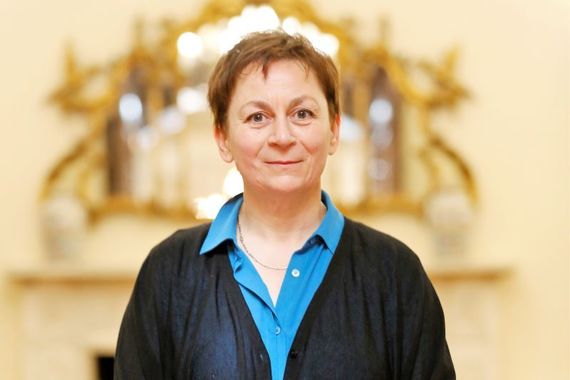
Author Anne Enright.
O'Hara
The O'Haras are an important sept of distinguished origin. They are descended from Eaghra (pronounced "Ara"), who was chief of Leyny in Co. Sligo, a scion of the family of Olioll Ollum, King of Munster. In Irish the name is Ó hEaghra, of which the anglicized form O'Hara is a phonetic rendering.
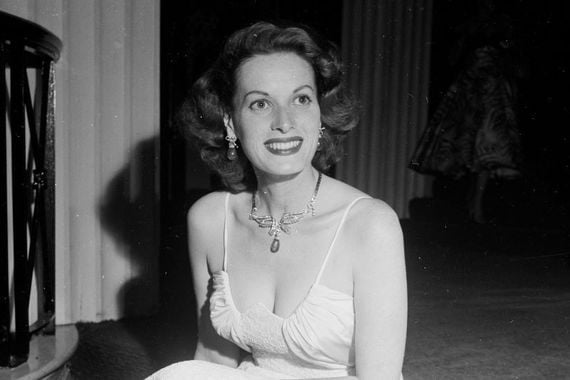
Maureen O'Hara
Harrington, O'Harraghton
Harrington itself is a well-known English name, common in England, but very few of our Irish Harringtons are of English stock. This name is an example of that slavish tendency, much in evidence during the centuries of Gaelic submergence, whereby good old Gaelic Irish surnames were transmogrified into common English ones having more or less the same sound. The name is O'Airchdain in Gaelic.
O'Hart
Hart is a native English name, but in Ireland the Harts (usually spelled Harte in Connacht) are nearly all from the sept O'Hart. Some families have always retained, and others have recently resumed, the prefix 'O'. In Irish the name is Ó hAirt, i.e. descendant of Art, who was son of King Conn of the Hundred Battles.
O'Hartigan
The O'Hartagans, or O'Hartigans, are a Calcassian sept located in Thomond and are still well known around Limerick, though nowhere are they very common. The name is Ó hArtagáin in Irish, probably derived from the well-known Christian name Art. Dunlaing O'Hartigan was one of the heroes of Clontarf. The best known of all in the sept was born in Ulster far from the home of his ancestors, namely Cineth O'Hartagan, the Gaelic poet who died in 975.
O'Hea, Hayes, Hughes
O'Hea is one of the anglicized forms of the very common Gaelic surname Ó hAodha, which has at least a dozen different and distinct origins in Ireland and is usually anglicized as Hayes, except in Ulster where it has become Hughes. Ó hAodha simply means descendant of Aodh, anglice Hugh.
O'Healy, Hely, Kerrisk
Though a genuine Gaelic name, Healy is very rarely found nowadays with its proper prefix 'O'; there is no entry in current directories under O'Healy, O'Hely or O'Haly, forms which were common up to the end of the seventeenth century. Healy, however, is one of the most common names in Ireland taking forty-seventh place in the list of the hundred most common surnames, with a total number of persons of nearly 13,000. First found in Sligo, where the O'Healys held an ancient family seat.
O'Heffernan
The sept of Heffernan originally inhabited a territory near Corofin, Co. Clare, called Muintirfernáin after them. They established themselves in eastern Limerick on the Tipperary border, where they were chiefs of Owneybeg. They were then displaced by the Ryans. The principal families of the name did not migrate very far – they were among the most important in the barony of Clanwilliam in 1600.
O'Hegarty
Hegarty, sometimes O'Hegarty but seldom Haggerty in Ireland (a form of the name found among Irish-Americans), is in Irish Ó hÉigceartaigh ("éigceartach" means "unjust"). Though now associated principally with Co. Cork, the Hegartys of Munster are in fact a branch of the main O'Hegarty sept of the Cinel Eoghan, which was located on the borders of the present counties Donegal and Derry. In the fourteenth century the barony of Loughinsholin (Co. Derry) was their principal location.
O'Hennessy, Henchy
Hennessy is a name from which the prefix O has been entirely dropped in modern times, though O'Hennessy was still widely used in the seventeenth century. In Irish it is Ó hAonghusa, i.e. descendant of Aonghus or Angus. The principal sept of this name was located near the town of Kilbeggan and the hill of Croghan, their territory being chiefly in the northern part of Co. Offaly, where they shared with O'Holohan the lordship of Clan Cholgain.
(Mac)Henry, O'Henry, Fitzhenry
There are some 5,000 persons in Ireland today bearing the surname Henry – without 'O' or 'Mac'. The majority of these are Ulstermen formerly called O'Henry, the Irish form being Ó hInneirghe.
O'Heyne, Hynes
The rather commonplace surname Hines or Hynes is a modern form in English of the very distinguished name O'Heyne, in Irish Ó hEidhin. Descended from Guaire the Hospitable, King of Connacht. From the seventh century to the destruction of the Gaelic order nearly a thousand years later the head of the O'Heynes was chief of a territory in south Galway, barony of Kiltartan.
O'Hickey
Hickey, also spelled Hickie, is the anglicized form of the Irish Ó hIcidhe (pronounced O Hickee); "iceadh", from which it is derived, means "physician" or "healer". The Hickeys are closely identified with Co. Clare and north Tipperary, being Dalcassian in origin and hereditary physicians to the ruling O'Briens of Thomond. In the course of time they have spread to adjoining counties and at present are as numerous in Limerick as in Clare and Tipperary.
O'Higgin, O'Higgins
Despite the very English appearance of the surname Higgins, as it is usually anglicized, it is in fact a purely native Irish Gaelic name that should normally have been O'Higgins in English, the Irish form being Ó hUigín, pronounced O'Higgeen. The name, according to modern scholarship, is derived from the old Gaelic word "uiging", meaning "Norse Viking" - not from the word "uige".
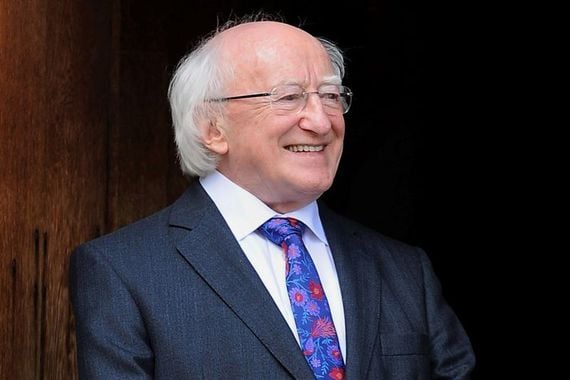
The President of Ireland Micheal D. Higgins.
O'Hogan
The Hogans are a Dalcassian family, their eponymous ancestor being Ógan who was descended from an uncle of Brian Boru, the most celebrated of all the Kings of Ireland. The Dalcassian territory extended well beyond the boundaries of Co. Clare, which was the heart of Thomond, their area.
O'Holohan, Holland, Holian, Mullholland, Hyland
O'Holohan – Ó hUallacháin in Irish – is the name of at least two septs originally located in Offaly and in Thomond (present-day County Clare and County Limerick, as well as parts of County Tipperary). In the course of time they spread southwards in both cases, but in the census of 1659 the great majority of the name were living in Co. Kilkenny: at the present time it is chiefly found there with the spelling Holohan, and in the western part of Munster with the spelling Houlihan.
O'Horan, Haren
The true sept of O'Horan (Ó hOdráin in Irish) originated in Co. Galway whence they spread into Co. Mayo and are now fairly numerous in those Connacht counties. Another Gaelic surname, Ó hArracháin, which is a corruption of Ó Hannradhain (anglice Hanrahan) is commonly anglicized Horan, though in Thomond (Co. Clare), where this minor Dalcassian sept originated, it is usually pronounced, and sometimes written, more phonetically Harhan.

Niall Horan
O'Houneen, MacGlashan, Greene
Although Green is one of the most common indigenous surnames in England and no doubt many of our Irish Greenes are of English extraction, nevertheless, the majority of those who hail from Connacht and west Munster are native Irish in origin. There the name is almost always spelled with a final E.
MacHugh
The Gaelic surname MacAodha, signifying the son of Aodh, i.e. Hugh, has acquired in the process of anglicization a great number of variants. These include MacKay, MacKee, MacCoy, Huges, Hewson, Eason, etc., and also MacHugh. MacHugh is the form used by the Connacht sept, which is one of the same stock as the O'Flahertys: they were chiefs of the territory known as the barony of Clare in Co. Galway.
O'Hurley, O'Murhila, Murrily, O'Herlihy
The well-known surname Hurley is used as the anglicized form of two distinct Gaelic patronymics. The Thomond sept of Ó hUirthile descends from one Uirthile or Urley (an obsolete Christian name), who was of the race of Blod, son of Cas, the progenitor of the Dalcassians. O'Hurley was one of the principal chiefs of Thomond in 1309, but after that, they have mainly been found in Co. Limerick, in the Kilmallock area, and in north Tipperary where there is a place named Rathurley in the parish of Kilruane.
McInerney, Nerney, Kinnerk
In Irish this name is Mac an Airchinnigh, meaning son of Erenagh. The word "erenagh" denotes "steward of church lands", originally an ecclesiastical office but later in the hands of laymen and hereditary. As might be expected, therefore, the surname in question came into existence in a number of unrelated families in different parts of the country. The Erenaghs of St. Patrick, Elphin, and of Tuam thus acquired the surname Mac an Airchinnigh.
Jennings
The name Jennings is the modern anglicized form of Mac Sheoinín, pronounced MacKeoneen, and written MacIonyn, MacJonine, etc., in the records up to the middle of the seventeenth century. It is not, however, of true Gaelic origin, being a surname adopted by a branch of the Burkes of Connacht, descended from Seoinín or Little John Burke. Jennings, of course, is itself a common indigenous English surname and some people in Ireland may well be of English origin, but it is safe to say that in Connacht, where the name is chiefly found today, they are of the Burke stock.
Jordan
Though Jordan is quite a common English name, very few of Irish Jordans are of English descent. Mac Siurtáin was a surname of the Gaelic type adopted by one of the hibernicized Norman families, which acquired extensive territory in Connacht after the invasion of 1172. It signifies "descendants of Jordan", i.e. Jordan de Exeter, and this sept in due course became associated with the phrase "wild Irish".
Joyce
Though not Gaelic and sometimes found in England of non-Irish origin, Joyce may certainly be regarded as a true Irish name, and more particularly a Connacht one. The first Joyce to come to Ireland of whom there is authentic record was Thomas de Jorse or Joyce, stated by Mac Firbis (Dubhaltach Mac Fhirbhisigh) to be a Welshman, who in 1283 married the daughter of O'Briend, Prince of Thomond, and went with her by sea to Co. Galway.
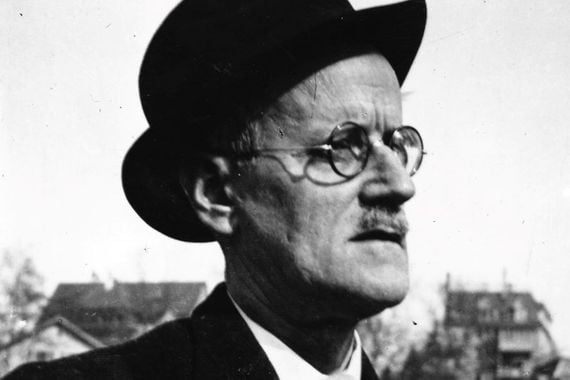
James Joyce
Kavanagh, Keevan
Kavanagh is one of the very few ancient Gaelic Irish surnames, which has neither the prefix 'Mac' or 'O': it is wrong to call it Ó Caomhánach in Irish. In Irish it is simply Caomhánach, which is an adjective denoting association with Caomhán, in this case St. Caomhán, the first Kavanagh having been fostered by a successor of this saint. First found in Co. Carlow.
Keane, O'Kane, O'Cahan, MacCloskey, MacEvenney
There were two great septs of Ó Catháin. The earlier anglicized form of this name was O'Cahan, and even as late as the beginning of the present century, O'Cahans were still found in Co. Derry, but in modern times the forms Keane, Kane, and sometimes O'Kane, are almost universally used: Keane in Munster and Connacht, and Kane in Ulster.
O'Kearney, Carney
The name Kearney is evenly distributed throughout the four provinces of Ireland; the alternative spelling Carney, however, is almost confined to Connacht, particularly Co. Mayo. The latter are Ó Cearnaigh in Irish (presumably from "cearnach", meaning "victorious") and are a branch of the Ui Fiachrach, whose territory name was Moynulla and Balla in Co. Mayo. The Dalcassian O'Kearneys, who migrated to Cashel (Co. Tipperary) in early times, are also Ó Cearnaigh.
Keating, Keaty
Though it is still found indigenous in England, Keating is a name, which may be regarded as hibernicized. The Keatings of Norman origin themselves first came to Ireland with the Anglo-Norman invaders at the end of the twelfth century, when they settled in Co. Wexford, with which they are most prominently associated.
O'Keeffe
The O'Keeffes not only originated in Co. Cork, but they also stayed there. It is still and out-and-out Co. Cork name, judging by birth registrations, voter lists, directories, and the like. It is true that, like so many powerful native Irish septs, they were forced out of their original territory by the invading Normans, but in their case it was only a trek westwards within the bounds of what is now Co. Cork. It derives from the Gaelic word "caomh", which means "gentle".
O'Keenan
The sept of O'Keenan – Ó Cianáin in Irish – is chiefly remarkable for the number of distinguished ecclesiastics and historians it produced in the middle ages. Between 1345 and 1508, no less than eight are mentioned by the Four Masters as historians to the Maguires of Fermanagh. The most famous of these was Adam Ó Cianáin, Canon of Lisgoole, while one Rory O'Keenan was chief scribe of "The Book of Magauran".
O'Kelleher
The Kellehers are a Dalcassian family, in Irish Ó Céileachair, i.e. "descendent of Céileachar or Kelleher", who was a nephew of the famous Brian Boru. They left their original dwelling in Co. Clare in the fourteenth century and migrated to Co. Cork. The name is now seldom found outside of this part of Munster: of 148 births recorded in one year for the name, 92 were in Co. Cork and 23 in Co. Kerry.
O'Kelly, Queally, O'Keily
There are approximately 50,000 Kellys and O'Kellys in Ireland today. It is the second most common Irish surname, not far behind Murphy in numerical strength. This name presents a remarkable example of the extent, to which the prefixes 'O' and 'Mac', so widely dropped during the period of Gaelic submergence, have been resumed. The personal name may derive from the Gaelic word "ceallagh", which means "strife".
MacKenna
MacKenna is one of the few names, from which the old Gaelic prefixes of 'Mac' and 'O' were not generally dropped in the dark period of the eighteenth and nineteenth centuries. Though almost always written MacKenna, in the spoken language, Kenna is quite common and in some places, notably Clare and Kerry, the emphasis is on the final 'A', with the results that births have been from time to time registered under many synonyms.
O'Kennedy, Minnagh
The eponymous ancestor of the O'Kennedys was Kennedy, nephew of Brian Boru, or Cinnéide in Irish, the resultant surname being Ó Cinnéide (Brian Boru’s father was Cinnéide). They are thus a Dalcassian sept, and at first their territory was around Glenomra near Killaloe, and their occupation is perpetuated by the name of the civil parish comprising that area, namely Killokennedy (Irish: Cill Ó gCinnéide), but pressure from the powerful O'Briens and MacNamaras caused them to cross the Shannon and settle in Upper and Lower Ormond.
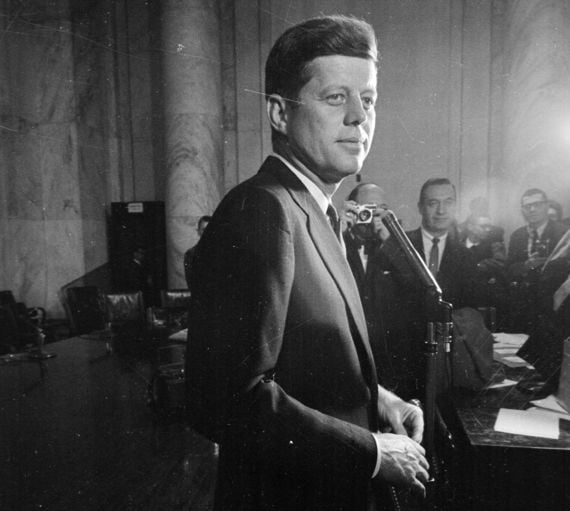
US president John F Kennedy.
O'Kenny
The name Kenny is common in Ireland: it has seventy-sixth place in the list of commonest surnames. The majority of the people so called belong to families located in Counties Galway and Roscommon. This is the homeland in early times, as well as today, of the O'Kenny sept, which in Irish is Ó Cionnaotih: it is of the Uí Máine (Hy-Many) and the same stock as the O'Maddens.
MacKeogh, Kehoe, O'Hoey, Hoy, Haughey, Haugh, Hough
Keogh, including Kehoe and MacKeogh, almost equally common forms of the same Irish surname Mac Eochaidh – just misses a place in the hundred most common names in Ireland. It is mainly found in the province of Leinster, the spelling Kehoe being usual in Co. Wexford. It derives from the common personal name "Eachaidh", meaning "horseman".
MacKeon, MacKewon, Owens, Hone
Though it originated in Co. Sligo, the sept of MacKeon may be regarded as belonging to the adjacent county of Leitrim, as it is there they are found both in medieval and modern times. The name, in Irish Mac Eoghain, simply means "son of John or Owen" (in the Tuam area it is sometimes anglicized as Johnson). This sept had an important branch in Co. Galway: the sixteenth-century "Composition Book of Connacht" refers to lands in the barony of Kiltartan then called "Termon Brian MacOwen".
O'Kieran, O'Kerin, Kearns, Kerrane
The sept known in Irish as Ó Céirín was in early times in possession of the greater part of the present barony of Costello, Co. Mayo, of which their chiefs were paramount. During the medieval period they gradually became reduced in importance, though they remained in their native habitat in a more or less subordinate position and also spread into the neighboring counties.
O'Kinneally, Quinelly
The original Gaelic form of this name is Ó Cinnfhaelidhl – there are several anglicized forms of it – Kinneally, Kennelly, among others. Kennelly is also used as a synonym for Quinnelly, a West Cork surname, so confusion may arise in this case. The name now under consideration is that of a sept living in the territory known today as the barony of Connello in Co. Limerick.
Kinsella
This is one of the few genuine native Gaelic surnames without the prefix 'Mac' or 'O'. It is true that the form O'Kinsellagh is sometimes found in old documents, and a few present-day Kinsellas have "resumed" an 'O', but to do so is incorrect, as Kinsella, or Cinnsealach in Irish, is, like Kavanagh, an agnomen which has supplanted the original name. Kinsellas and Kavanaghs descend from Dermot MacMurrough (Irish: Diarmait Mac Murchada), ill-famed King of Leinster from 1134-1171.
O'Kirwan
The Kirwans – the 'O' is never used with this name nowadays – are best known as one of the "Tribes of Galway". They are second only to the Lynches as a leading family of the county. Like the Darcys and unlike the other twelve "tribes", they are of Gaelic origin. They are first recorded in history as erenaghs in Co. Louth and were not connected with Galway until the fifteenth century.
Lacy, de Lacy
The de Lacys of Ireland, more commonly now called Lacy or Lacey, came to the country at the time of the Anglo-Norman invasion, having gone to England from Lascy in Normandy in the previous century with William the Conqueror. In the Annals the name is written de Léis in Irish.
Lally, O'Mulally
The name Lally is a contraction of O'Mullally, which was formerly the normal form in English of the Gaelic Ó Maolalaigh. This sept, a branch of the Uí Máine of the same stock as the O'Naghtens, was of some importance in Connacht, where, after the coming of the Anglo-Normans, they were at constant feud with the de Burgos or Burkes. Through this, and other causes, they were obliged to move northwards, but only a short distance, as they remained in the area subsequently formed into Co. Galway.
O'Lalor, Lawlor
This name in modern times is spelled in three ways – Lawlor, Lalor, and Lawler. The first of these being slightly more common than the others. In Irish it is Ó Leathlobhair, which would appear to denote "descendant of the half leper", no doubt a nickname arising from a physical defect and not to be taken literally. The prefix 'O', it may be noted, which was discarded during the period of Gaelic submergence, has not been resumed in modern times.
O'Leary
O'Leary has always been essentially a Co. Cork surname. Like many Gaelic septs, they were driven from their original dwelling at the time of the Anglo-Norman invasion at the end of the twelfth century, but they did not migrate far – only from Corca Laidhe, a remote territory with the lofty Kerry mountains in sight to the west of them. Here they long ruled as chiefs under the MacCarthys of Muskerry.
O'Lee, MacAlee
Lee is a fairly widespread name in Ireland, but as it is also a very common indigenous surname in England, it is impossible to say in the absence of a pedigree, or at least a well-established tradition, whether a family of the name in Ireland is Gaelic in origin or of planter stock. The latter were well established in Co. Tipperary and elsewhere at the beginning of the seventeenth century.
O'Lenaghan, Linehan
A Roscommon family of this name, in Irish Ó Léanacháin, appears in early records, the most notable of whom was Maelciaran O'Lenechan of Tuamna, in Boyle barony, a priest very highly praised in the "Annals of Loch Cé" and by the Four Masters for his many good qualities; he died in 1249. Little is heard of them in modern times.
O'Lennon, Linnane, Leonard, Linnegar, MacAlinion
The normal form of Lennon in Irish is Ó Leannáin, or Ó Lionnáin, but confusion arises because these Gaelic names have been anglicized Leonard and Linnane, while the Irish surnames Ó Lonináin (Lenane) and even Ó Luinín (Lineen) are also sometimes Lennon or Leonard in English. Of these Lennane, or Linane, belongs to the Corca Laoidhe group and was situated near Glandore Harbour.
O'Lonergan
In pre-Norman times the O'Lonergans inhabited northeast Thomond, i.e. the part of Tipperary, which lies on the east side of Lough Derg, but the pressure exerted by the Anglo-Norman Butlers forced them southwards to the country around Cashel and Cahir, where they have remained in considerable numbers up to the present day. The name, in Irish Ó Longargain, is usually anglicized Lonergan, without the prefix 'O', but sometimes takes the form Londrigan.
O'Lorcan, Larking
The prefix 'O' has been entirely dropped from this old and distinguished Gaelic surname. It was born by a number of distinct and unrelated septs. The most important of these was Ó Lorcáin of Leinster, of royal blood in that province but dispossessed of their patrimony in the barony of Forth by the Anglo-Norman invaders.
O'Loughlin, Loughnane
The sept of O'Loughlin is entirely distinct from those of MacLoughlin, though some confusion arises outside of Munster due to the dropping of the prefixes 'Mac' and 'O' in the eighteenth and nineteenth centuries. It should also be remembered that the MacLoughlins of Cineál Eoghain or Kinel Owen, in the days when they were a royal family, were first called O'Loughlin, but about the year 1200 they became MacLoughlin.
MacLoughlin
The surname MacLoughlin, also spelled MacLaughlin, is used in modern Ireland as the anglicized form of that of two entirely distinct Gaelic septs, both of considerable importance. One indeed which was of royal status, is not a 'Mac' name at all but an 'O' name, being Ó Maoilsheachlainn in Irish, and up to the end of the seventeenth century always anglicized O'Melaghlin (with some slight variants).
O'Lowry, Lavery
The Irish surname Ó Labhradha is rendered in English as either Lowry or Lavery, both these forms found in almost equal numbers in northeast Ulster where the sept originated. Their territory in medieval times was in the neighborhood of Moira, Co. Down. Branches of the sept were called Baun-Lavery, Roe-Lavery and Trin-Lavery, these epithets being the Gaelic adjectives "bán" - "white", "rua" - "red", and "tréan" - "strong".
Lynch
It must be emphasized at once that the name Lynch, which is among the hundred most common surnames in Ireland, is of dual origin. Lynch is used as the anglicized form of the native Gaelic names Ó Loingsigh, and also of the Norman de Lench. First found in Galway.
O'Lyne, Lyons, Lehane, Lane
The four surnames given above are the anglicized forms of two distinct Gaelic surnames. Lehane is particular to Co. Cork, while Lyne today is found chiefly in Co. Kerry, though formerly well known in Co. Galway where Lyons has superseded it. Lyons is the most common form of this name.
O'Madden, MacAvaddy, Madigan
Madden is one of the Gaelic Irish surnames from which the prefix 'O' was dropped during the centuries of Gaelic eclipse, but which did not share in the widespread resumption of 'O's and 'Mac's since the Gaelic revival. In Irish it is Ó Madáin, the earlier form being Ó Madadháin. This sept was a branch of the Ui Máine (Hy-Many) living in this part of Co. Galway which lies beside the Shannon, extending over that river into Offaly.
MacMahon, Mohan, Vaughan
MacMahon is one of the best-known and most distinguished names in Ireland. In Irish Mac Mathghamhna, or in ultra-modern spelling MacMahúna, it is said to be derived from the Irish word for "a bear" - "mathghamhan" (Mathghamhain also being the name of High King Brian Boru's grandson). It is borne by two quite distinct septs. One of these belongs to Co. Clare, in which county it is now the most common name.
O'Mahony
There are a great many O'Mahonys in Ireland – the name is included, usually without the prefix 'O', in the hundred most common surnames. It belongs almost exclusively to West Munster, the great majority of Mahony and O'Mahony births being registered in Co. Cork, particularly in the area associated historically with the O'Mahony sept.
O'Malley
O'Malley may be referred to as the Irish of the Irish. It is one of the few 'O' names from which the prefix was never widely dropped. It is not especially common, but it is very well known. It belonged exclusively in the past to Co. Mayo, and this is almost equally true of the present day: over 80 percent of the births recorded are in Connacht and most of these are in Co. Mayo.

US politician Martin O'Malley.
O'Malone
Although Malone is a genuine 'O' name, being in Irish Ó Maoileoin (meaning descendant of the follower of St. John), it is never met with in English with its prefix. The Malones are an ancient sept, associated with the O'Connors of Connacht, and for centuries their principal family was associated with the Abbey of Clonmacnoise, to which they furnished many abbots and bishops. For a time Clonmacnoise was an independent see ("see", i.e. the place in which a cathedral church stands, identified as the seat of authority of a bishop or archbishop). before being united with Ardagh.
O'Mangan, Mongan
The normal form of Mangan in Irish is Ó Mangáin, which is more phonetically anglicized as Mongan in parts of Connacht. But even in Mayo, the original homeland of one of the septs, it is usually Mangan nowadays. The Munster Mangans, originally from Co. Cork, are now found more frequently in Co. Limerick.
Mannion, O'Mannin, Manning
The sept of Ó Mainnín was located in the barony of Tiaquin, Co. Galway, their chief's residence being the castle of Clogher. They were an important sept in the Hy-Many country but were not of that group by descent, as their ancestors were the ancient pre-Gaelic Pictish rulers of that area. Their territory was much reduced by the O'Kellys, and their estates were largely lost in the seventeenth-century confiscations, but the Mannions remained in their homeland where they are common today.
Mannix, O'Manahan, MacNeice
Mannix is the usual form in English of the Gaelic surname Ó Mainichín (derived from "manach" – "a monk"); a minor sept of Corca Laoidhe in the southwest of Co. Cork: it is placed in the "Book of Lecan" and other medieval manuscripts in the O'Hennessy territory at the head of Rossy Bay. The name was never numerous and is now scarce, rarely found outside the counties of southwest Munster.
MacManus
This name is often stated to be Norse in origin, but in fact it is as thoroughly Irish as any ancient Gaelic name. MacManus is Mac Maghnuis in modern Irish, meaning "the son of Magnus". Magnus (Latin: great) as a Christian name came to Ireland from northern Europe, but its combination with 'Mac' as a surname originated in Ireland.
Martin, MacGilmartin, Kilmartin
Martin is among the fifty most numerous surnames in Ireland; in fact, it is in thirty-eighth place. The 13,000 persons of the name in Ireland are widely distributed over the country, being found most frequently in East Ulster and, of course, Dublin which, being the metropolis, contains families from all provinces. Martin is also a common name in Great Britain.
O'Meagher, Maher
Maher, also written Meagher (Ó Meachair in Irish) is derived from the word "meachar", meaning "hospitable". Maher is a word of two syllables, not to be pronounced "Marr". Of the same stock as the O'Carrolls of Ely it belongs to the barony of Ikerrin in Co. Tipperary. In fact, 50 percent of the 8,000 people of the name come from Co. Tipperary.
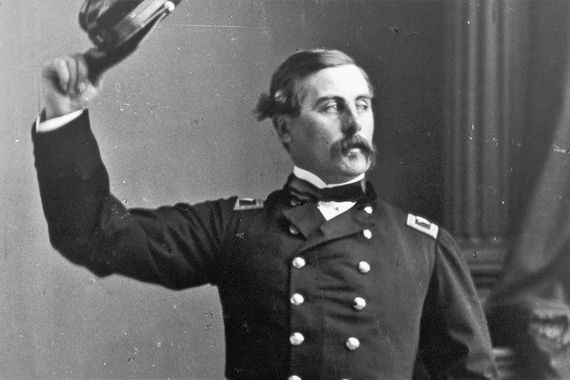
Thomas Francis Meagher.
O'Meara, O'Mara
In Irish this name is Ó Meadhra and both the spellings given above are used as the ordinary anglicized form, O'Meara being slightly more numerous than O'Mara. It is of interest to note that while 60 years ago the records show that less than one third of the people of the name used the prefix 'O', today it is very rare in Ireland to find plain Mara or Meara without it.
O'Meehan, Meighan
O'Meehan (in Irish Ó Miadhacháin) is the name of a sept belonging to Co. Leitrim. This sept (also called Meighan) is of the same stock as the MacCarthys of south Munster, but by the end of the eleventh century they had migrated and established themselves in their new country. Their association therewith being perpetuated by the place name Ballaghmeehin, or Ballymeighan, in the parish of Rossinver, Co. Leitrim.
O'Molloy, Miley, Millea, Slowey
The O'Molloys, now always simply Molloy or occasionally Mulloy, are of very distinguished origin. They are of the southern Ui Neill, traditionally descended from the famous Niall of the Nine Hostages, King of Ireland A.D. 371. The head of this important sept was O'Molloy, chief or lord of Fércal - a district covering several baronies of the county of Offaly (alias King's County).
O'Molony, Maloghney
Molony or Moloney is Ó Maoldhomhnaigh in Irish, which denotes "descendant of a servant of the church". It is seldom if ever found today with the original prefix 'O', though it is 100 percent Gaelic with no similar name to be found in England. Molony is a Dalcassian sept belonging to Kiltanon near Tulla in East Clare, where they are very numerous today, although it is also found in equal numbers in the adjoining counties of Limerick and Tipperary.
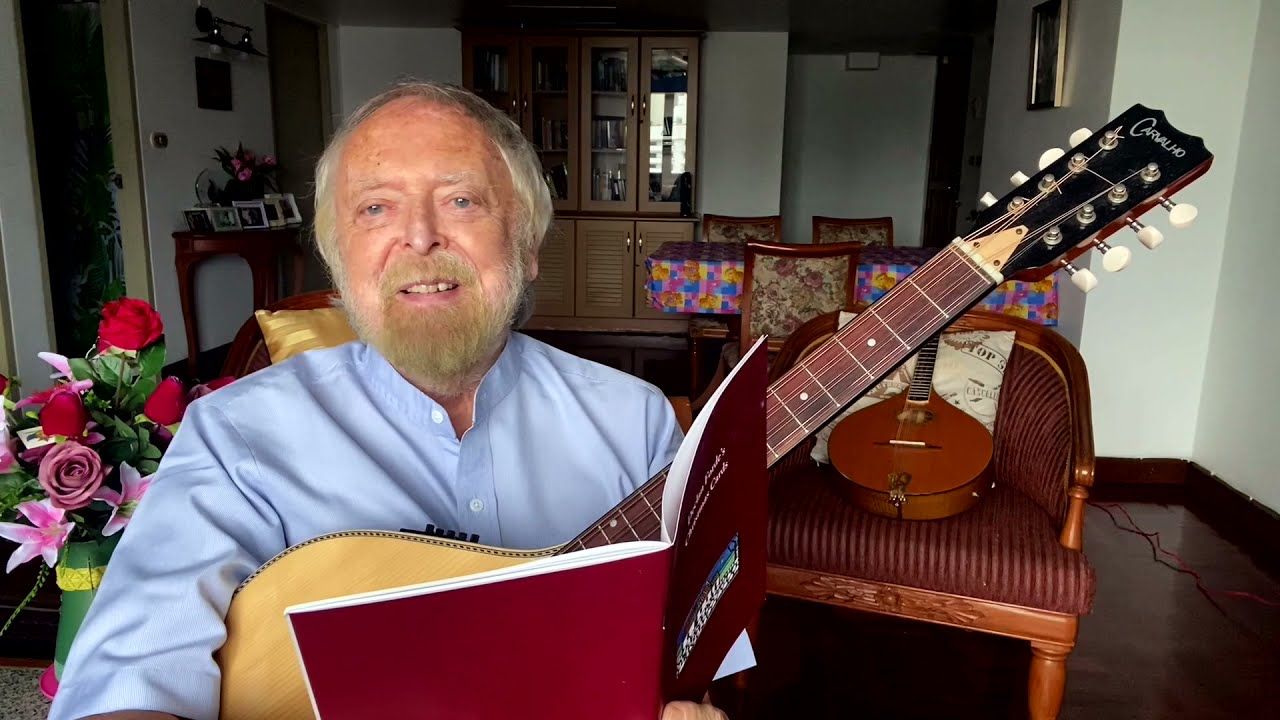
Mick Moloney (RIP).
O'Monahan, Monkes
The name Monohan or Monaghan (the latter is the more common spelling in Ireland) is chiefly found in the counties of Galway, Mayo and Fermanagh, all of which are not far from the original dwelling of the O'Monaghans, namely the part of Co. Roscommon, which lies between Elphin and Jamestown. The Four Master record O Monaghan (Ó Manacháin in Irish) as Lord of the Three Tuathas of Roscommon in 1287, about the time they were displaced from lordship by the O'Hanlys.
O'Mooney, Meeny, Mainey
This name, Ó Maonaigh in modern Irish, is derived from the Old Irish word "moenach" meaning "dumb", or "maonach", meaning "wealthy". It is a surname adopted by several unrelated septs. The eponymous ancestor of the O'Mooneys of Ulster was Monach, son of Ailioll Mór. First commonly found in Offaly.
O'Moran, Morrin
Though common enough to be included among the 60 most common names in Ireland and now to be found in every county, Moran is essentially a Connacht name and the majority of the population belong to the Connacht counties of Mayo, Galway, Roscommon, and Leitrim. This might be expected, because the two quite distinct septs Ó Móráin and Ó Móghráin, now both anglicized as Moran, held their territory in that province.
O'More, Moore
Moore is a very common name in Ireland: with some 16,500 of the population, it holds twentieth place in the list of most common names. The great majority of these (apart from the metropolitan area) are in Munster and Ulster. It is practically impossible to say what proportion of these are of Gaelic Irish origin and what proportion of English extraction, for Moore is also indigenous in England and very common there.
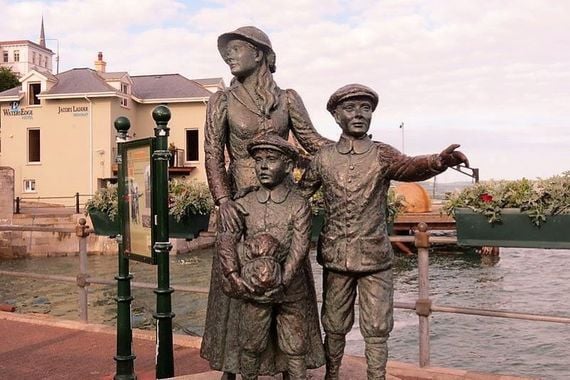
The first person to go through Ellis Island, Annie Moore.
O'Moriarty, Murtagh
Moriarty is Ó Muircheartaigh in Irish, but nowadays the prefix is never attached to this name, though the form O'Moriarty (and indeed occasionally MacMoriarty) is found in old records. The sept, which is of the same stock as the O'Donoghues and the O'Mahonys, has always been associated with Co. Kerry. Their original territory lay on both sides of Castlemaine Harbour, but after the Anglo-Norman invasion their influence was reduced by the rise of the Fitzgeralds, despite an early alliance by marriage. O'Moriarty, Chief of the Name, married the daughter of a leading Fitzgerald around the year 1210.
O'Moroney, Mulrooney
The Irish surname Ó Maolruanaidh (meaning "descendant or follower of Ruanaidh or Rooney") was that of several septs in mediaeval times. That of Fermanagh, where they were powerful before the rise of the MacGuires, survives today in small numbers under the name of Mulrooney. West of the Shannon the name has become Moroney.
Morris, Fitzmaurice, Morrison
Though the name Morris is essentially English, it has been used, as well as Morrison, as an anglicized form of Ó Muirgheasa, a sept of the Ui Fiachrach (Co. Sligo), where the regular form Morrissey is now rarely met with. Ó Muirghis is an abbreviation of this. Morris is also used as an abbreviation of Fitzmaurice (in Irish Mac Muiris), the Fitzmaurices being celebrated as a branch of the Geraldines and lords of Lixnaw in Kerry.
Morrissey
As in the case of Morris, the bearer of the name Morrissey anxious about his forebears, is faced with many problems, unless he has a reliable pedigree of, or at least a well recognized tradition, about his own family. The only native Gaelic Irish sept whose name has been anglicized as Morrissey is Ó Muirgheasa, a branch of the Ui Fiachra: their territory was at the southern side of Sligo Bay.
Moynihan
Although there was a small sept of this name, sometimes changed to Munster in Mayo, families so called belong almost exclusively to south-west Munster, Moynihan being very numerous on the borders of two counties. Minihan, another form of the name, is mainly found in Cork. Ó Muimhneacháin can translate into Munsterman.
O'Mulcahy, Muckley
This is Ó Maolchathaigh in Irish – "cathach" means "warlike". The prefix 'O' is seldom if ever used here nowadays. Mulcahy is a fairly common name in south Munster but not elsewhere. It is said to have originated in south Tipperary. The census of 1659 shows that it was common in Counties Waterford and south Tipperary, and also Limerick and Cork in the seventeenth century.
O'Mullan, O'Mellan, Mullen
The name Mullen originated from several very distinct sources. It can be an abbreviation of MacMullen, a Scottish surname borne by many of the seventeenth century settlers in Ulster; it can be one of the anglicized forms of the Irish Ó Maoláin, which is possibly derived from the Gaelic word "maol" (meaning "bald"). Other forms besides Mullen are Mullin and Mullan in Connacht, and Mullane and Mullins in Cork, Limerick and Clare.
O'Mulligan, Molohan, Mulqueen
The name Mulligan has in our day acquired a comic connotation on account of Jimmy O'Dea the Irish comedian's inimitable sketches of "Mrs. Mulligan the Pride of the Coombe", as well as the famous folk song. The sept of O'Mulligan (in Irish Ó Maolagáin), however, is of distinguished origin, its chiefs being lords of a territory called Tír MacCarthain. They were dispossessed in the Ulster Plantation of the early seventeenth century.
O'Mulvihil, Melville, Mitchell
O'Mulvihil is the anglicized form of Ó Maoil Mhicil, the eponymous ancestor being so called on account of his devotion to St. Michael. The sept was of some importance in medieval times, being of the same stock as the MacBrannans, and located with them on the west bank of the Shannon in the modern county of Roscommon; both were styled chiefs of Corca Sheachlainn, or Corcachlann.
O'Murphy, O'Morochoe
Murphy is the most common surname in Ireland: birth registration statistics indicate that of a population of 4 million, more than 55,000 are Murphys. The name, with which the prefix 'O' is never used nowadays, may be either Ó Murchadha or Mac Murchadha in Irish. It arose independently in several parts of Ireland, but was first found in Wexford, Roscommon and Cork. In Gaelic, it means "sea battler", translating into Gaelic as MacMurchadh and O'Murchadh. The name was first anglicized to MacMurphy and then to Murphy in the early 19th century.

Cillian Murphy.
MacMurrough
The name Macmurrough is one of the most illustrious in Ireland. It is, of course, best known as that of the royal house of Leinster – not too happily in the case of Dermot MacMurrough (1110-1171), King of Leinster, the abductor of Dervorgilla, the wife of O'Rourke, Prince of Breffny. It was MacMurrough who sought help from Henry II and thus was the immediate cause of the Anglo-Norman invasion.
O'Murry, MacMurry, Murray, MacMorrow, Gilmore
A considerable proportion of the Murrays now living in Ireland are of Scottish extraction, particularly in Ulster, where they are more numerous than in the other provinces. The old Irish surname Ó Muireadhaigh, formerly anglicized O'Murry, is now almost always Murray.
Don't see your surname listed here? You may find it in the following two lists exploring Irish last names, their origins and meanings:
* Originally published September 2021. Updated in Sept 2025.
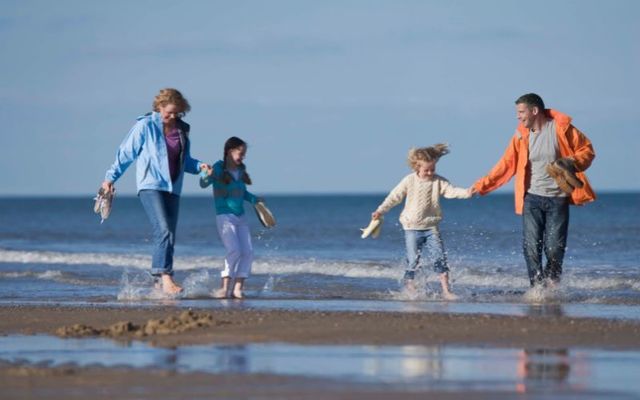
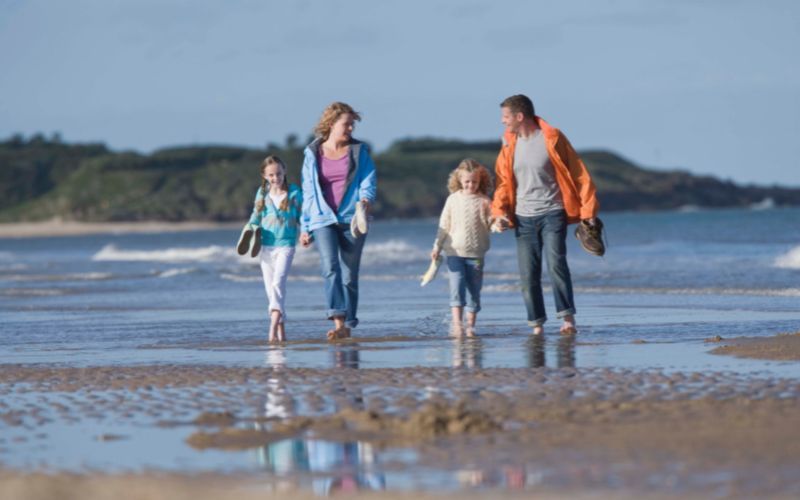
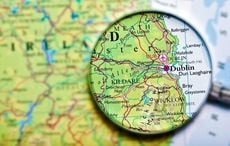

Comments